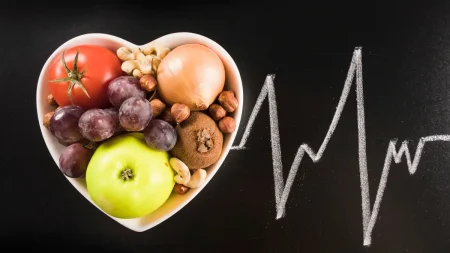A baby’s clinic card is one of the most essential documents for any parent. It’s more than just a piece of paper – it serves as an official record of your child’s health milestones, including critical immunizations, growth tracking, and other important health checks. But as we all know, life happens, and things can go missing. Whether it was forgotten in a taxi, misplaced during a move, or simply lost amidst the everyday hustle, a missing clinic card can cause anxiety for any parent.
Here’s a helpful guide on what you can do if you find yourself in this situation.
What is a Baby’s Clinic Card?
A clinic card or Road To Health Booklet, often issued at birth, is a comprehensive health record for your child. This card is used to track:
- Immunization Records: From birth, infants and young children receive several vaccines to protect them from life-threatening diseases. The clinic card keeps track of each immunization administered, recording dates and types of vaccines.
- Growth and Development Milestones: Regular growth measurements such as height, weight, and head circumference are tracked on the clinic card. This helps health professionals monitor the baby’s development, ensuring they are growing at a healthy rate.
- Medical History: Any medical issues, allergies, or chronic conditions can also be recorded on the card, giving a complete picture of the child’s health history.
- Nutritional Advice and Milestones: As babies grow, the clinic card sometimes includes information on feeding patterns, including breastfeeding, formula, or introduction of solid foods.
This card is necessary for school registration, ongoing immunizations, and regular health checks, so keeping it safe is crucial.
Steps to Take if You’ve Misplaced Your Baby’s Clinic Card
1. Don’t Panic – The Information is Likely Stored at the Clinic
The first thing to remember is that most health facilities keep a backup of immunization records. Most clinics document all details electronically or in physical records, so you’ll be able to retrieve these records from the facility.
2. Visit the Same Clinic or Hospital
Returning to the clinic where your child received their vaccinations is the easiest way to get a replacement card. This is where the original records are stored, so the process of getting a replacement will be faster and more accurate. You can ask the clinic staff to issue a new clinic card and transfer the records from their system to the new card.
3. Know the Dates of Immunizations (If Possible)
If you remember specific dates of your child’s immunizations, mention them when requesting a replacement card. This step helps the clinic staff confirm your child’s immunization schedule, ensuring they get the right vaccinations at the right time.
4. Ask for an Immunization Verification in Your Absence of the Card
Even if you cannot get a replacement card immediately, most clinics will still allow your child to receive their scheduled vaccinations if they can verify the date in their records. This way, you won’t have to delay any important immunizations while waiting for a new card.
5. Bring Identification for Yourself and Your Child
In some cases, you may be required to show identification for both yourself and your child, such as a birth certificate or an ID book, especially when requesting an official replacement. This helps clinics verify that you’re the parent or guardian and that the records you’re requesting belong to your child.
What Information Will You Need to Provide to Replace a Clinic Card?
If you need to replace your clinic card, it’s helpful to provide:
- Your Child’s Full Name: Ensure you provide your child’s full name as it appears on any records to avoid confusion.
- Date of Birth: The date of birth is essential for locating records.
- Any Known Immunization Dates: As mentioned earlier, if you know any specific immunization dates, these can be helpful.
- Clinic or Hospital Details: Mentioning the specific branch or clinic where the immunizations were administered will make locating records easier for clinic staff.
Why is a Clinic Card Important?
Keeping your clinic card safe is essential as it acts as proof of immunizations and other health services your child has received. Here are a few important reasons why you should try to keep this card safe:
- School Registration: Schools require proof of vaccinations for enrollment to ensure all children meet public health requirements.
- Travel: If you plan to travel internationally, some countries require proof of certain vaccinations.
- Future Health Checks: Having a record of your child’s health history can assist doctors in understanding any health issues that may arise.
- Verifying Immunizations: Health professionals use clinic cards to ensure that all necessary vaccinations have been administered on time.
Tips to Keep Your Child’s Clinic Card Safe
- Store in a Designated Folder: Keep your clinic card in a specific folder or file designated for important documents. This way, you’ll always know where to find it.
- Take a Picture of the Card: Taking a digital photo of the clinic card and saving it on your phone or in cloud storage can act as a backup in case the card is ever lost.
- Keep a Photocopy in a Safe Place: A physical copy stored with other essential documents can be a lifesaver if you lose the original.
- Avoid Carrying it Around Unnecessarily: Only bring the clinic card when you know you’ll need it, like for a doctor’s visit or vaccination appointment. Avoid carrying it with you all the time.
What to Do if You Still Can’t Find a Replacement
If, for any reason, your clinic is unable to provide a replacement card, consider these alternatives:
- Request an Immunization Certificate: Some clinics or health departments offer immunization certificates as a record of vaccinations received. This can serve as a substitute for a clinic card.
- Contact the Department of Health: In some cases, you can get assistance from the Department of Health, who may have centralized records of vaccinations administered at public health facilities.
- Check with Your GP or Pediatrician: If your child has been receiving vaccinations from a private doctor or pediatrician, they may have the immunization records available and can issue a new clinic card or similar record.
Related: Where and How to Report Poor Service at Public Hospitals and Clinics
Protecting Your Child’s Health Records
Losing a clinic card can be stressful, but there are steps you can take to recover or replace this essential document. By visiting the original clinic, providing necessary details, and asking for help, you’ll likely be able to get a replacement card or an alternative record.
Remember, this card isn’t just paperwork – it’s a vital part of ensuring your child’s health and well-being. Safeguard it carefully, and consider taking extra steps, like making copies or taking a photo, to prevent this situation in the future.










